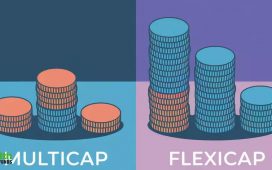Morningstar’s European Asset Flows report for December 2022 revealed that recovery was beginning to set in at the end of the year.
The final month was the second consecutive month of net positive flows for long-term funds, totalling €27bn.
While 2022 was a tough year for equities on the continent, seeing their worst flows since 2011 at €27.7bn in outflows, the fourth quarter saw a reversal, as the sector gained €9.1bn in inflows.
Indeed, global large-cap blend equity funds were the most popular product for the second month running, taking in €11.5bn in December.
Money market funds came with a very strong performance, gaining €73bn in inflows throughout the year, about five times more than 2021.
In the fourth quarter alone, the sector had€183bn in inflows.
Meanwhile, fixed income lost €84.4bn throughout 2022, the worst year for the sector since 2008. Nevertheless, fourth quarter flows were again positive at €19.4bn.
ESG continued its strong performance, with long-term passive funds classified as Article 8 and Article 9 experiencing “by far the highest organic growth rate” in the year, according to the report, at 11.4% and 15.7% respectively.
Looking to fund houses, Mercer Global Investments took the top spot in December, followed by iShares and Sjunde AP.
iShares was the overall winner of 2022, taking in more than €43.5bn in the year.
UBS, Nordea and Xtrackers saw the largest outflows in December, losing nearly €1.3bn, €884m and €635m, respectively.
Morningstar also reported that the Mercer Passive Global High Yield Bond fund was the most popular fund of that month at €2bn in inflows, while the iShares Physical Gold ETC fell to the bottom, with outflows totalling €735m.
Overall, assets in long-term funds domiciled in Europe fell to €10.3trn at the end of the year, compared to €10.8trn at the end of November 2022.
Valerio Baselli, senior international editor at Morningstar, said: “The year 2022 was not an average one for investors: The inflationary spike, central banks pushing interest rates to the highest levels in almost 15 years, concrete fears of a recession, the Russian invasion of Ukraine, and the energy crises depressed investors’ sentiments during the year, dragging down both equities’ and bonds’ performances”
“Through the year, it was the second and especially the third quarters that pushed down the overall result (€14.5bn and €58.7bn of net outflows, respectively), while the first quarter was mildly positive (€36.4bn taken in). The last quarter saw a change of course, with €9bn of net inflows.”










